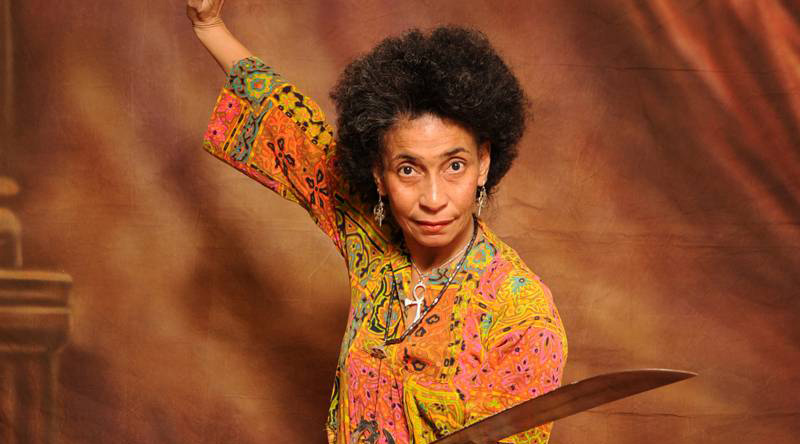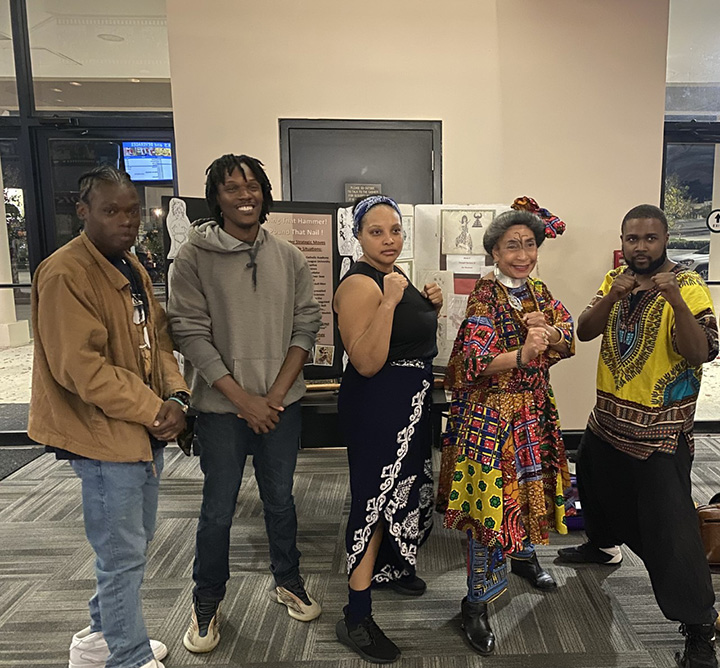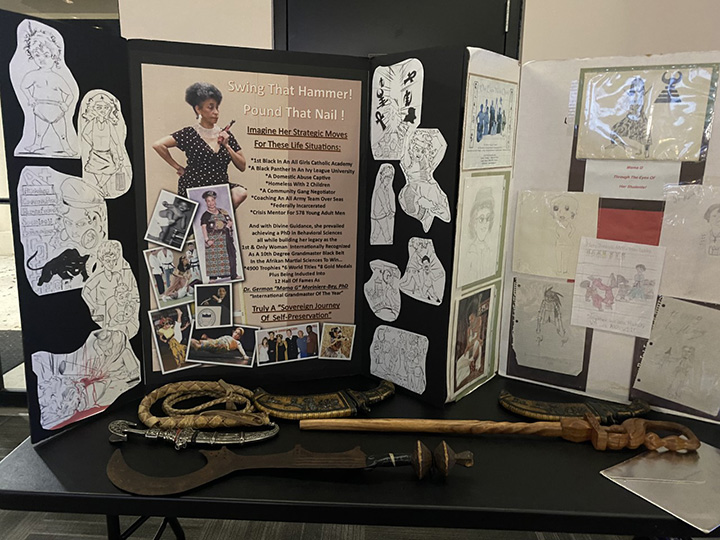African martial arts has taken Germon “Mama G” Moriniere-Bey around the globe. (Photo courtesy of Germon Moriniere-Bey)
With critically acclaimed hit movies such as “The Black Panther” and “The Woman King,” use of African martial arts have been getting world wide exposure.
Germon Moriniere-Bey of Columbia, the only African Martial Arts instructor in the state, sees the movies’ impact on the future of African martial arts.
“Purism, none — mixed movie stuff, plenty of it,” is her prediction, she said.
As of this year she has won more than 4,900 competitions in categories such as form, weapons, self defense and fighting, including four world titles and two international gold medals at the World Games and has earned title “Grand Matriarch.”
Today, Moriniere-Bey, who’s 69, is only one of three instructors in the United States teaching African martial sciences.
Moriniere-Bey, affectionately known as “Mama G” to her students, said people are more familiar with the term “African martial arts,” but she considers it “African martial sciences.”
“Art is the presentation of something,” Moriniere-Bey said. “But science is the application of what you see. In the movies, you see people punching, but to understand what happens when a person punches, that’s something different.”
Moriniere-Bey got her start in the practice because she wanted to feel safer.
“I had to find something that I could learn, because I was a dancer before anything else,” Moriniere-Bey said.
But dancing didn’t make her feel safe enough.
In Philadelphia, at the height of the Black Panther Party’s popularity, she joined the group and what she calls their “African Free Independent School,” which taught African martial science as a means of Black self defense.
“I was the first female they let in,” Moriniere-Bey said. “I think they felt sorry for me. I really do. And of course, my sons were there and they wanted to protect my sons and all. And it wasn’t easy. Because they didn’t treat me any differently from the guys. No different. If I didn’t keep my hands up, I got hit.”
After Moriniere-Bey joined the school, group members started competing nationwide against other organizations.
“We would win — either win or get disqualified — because we were knocking people out,” she said.
Still, she is the only female recognized by her male colleagues as “Askari,” which means “enforcer” or “local soldier” in many East African countries.
She developed what she teaches today, called the Akeru Discipline Sciences and is based on the unique combat systems from various African civilizations.
Moriniere-Bey, moved to Columbia in 2001 for love, offers classes Mondays and Tuesdays.
Thurayya Umbayemake began training with Moriniere-Bey earlier this year. She said she appreciates Moriniere-Bey’s ties of African culture and principles into their work.
Soon after she joined, she attended a competition with Moriniere-Bey and other students.
“It was thrilling — I was only a month into Akeru by then,” Umbayemake said. “I knew them by name, but it’s different when you get to watch them compete and see how they place among their peers. It deepened my connection with the family and the family element.”
Samuel Bennett is a second-generation student of Moriniere-Bey — his father also trained with her.
“The main thing we learned is self-preservation,” Bennett said. “Self-preservation is the ability to conserve yourself before” you have to face danger.
Bennett said the hardest part of African martial sciences is commitment.
“In the past year and a half, I would see so many people start,” Bennett said. “… They come, they start, and they don’t stick it out.”
Moriniere-Bey said African martial sciences provide a sense of clarity for her.
She doesn’t keep all the accolades she’s won, like in her younger years. She gives them away.
Moriniere-Bey said Ahati Kilindi Iyi, her mentor, would joke: “Yeah, you go to Mama G’s house, you don’t have chairs, you sit on trophies.”




